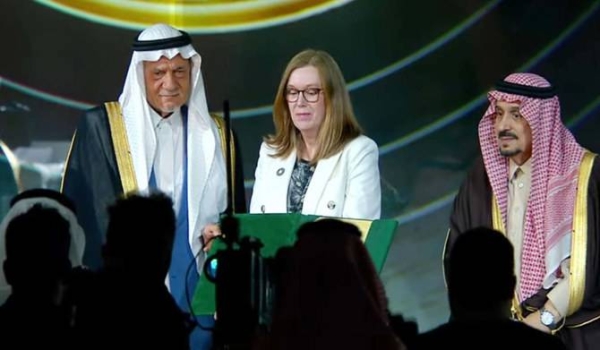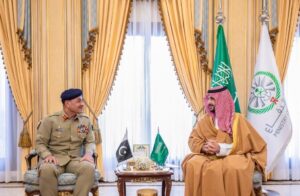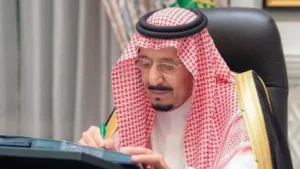45th King Faisal Award given away in Riyadh

Riyadh, The Gulf Observer: On behalf of Custodian of the Two Holy Mosques King Salman, Prince Faisal bin Bandar bin Abdulaziz, Emir of Riyadh Region, graced here Monday evening the award ceremony of the 45th King Faisal International Prize (KFIP).
Addressing the elite gathering, Prince Turki Al-Faisal, president of the Board of Directors of King Faisal Center for Research and Islamic Studies, welcomed the guests, led by Riyadh emir and Prince Bandar bin Khalid Al-Faisal, Advisor at the Royal Court and President of the Equestrian Authority. He congratulated KFIP laureates on winning this year’s prestigious award.
Secretary-General of KFIP Dr. Abdulaziz Al-Subayel announced the names of laureates of this year’s award, while Prince Faisal bin Bandar bin Abdulaziz gave away the prizes to the winners.
An Emirati, a Moroccan, a South Korean, two Brits and three Americans won the prestigious prize this year.
The prize for service to Islam was awarded jointly to Shaikh Nasser bin Abdullah of the UAE and Professor Choi Young Kil-Hamed from South Korea.
The prize for Islamic studies was awarded to Professor Robert Hillenbrand from the UK.
The prize for Arabic language and literature was awarded to Professor Abdelfattah Kilito of Morocco.
The prize for medicine was awarded jointly to Professor Dan Hung Barouch from the US and Professor Sarah Catherine Gilbert from the UK.
The prize for science was awarded jointly to Professor Jackie Yi-Ru Ying and Professor Chad Alexander Mirkin, both from the US.
Two women scientists have been honored as winners of the King Faisal Prize for medicine and science categories.
Professor Sarah Gilbert, the Saïd chair of vaccinology in the Nuffield department of Medicine at Oxford University who was behind the Oxford–AstraZeneca COVID-19 vaccine, was awarded the medicine prize.
The other woman scientist to win the Prize is Professor Jackie Yi-Ru Ying. She is a professor at Massachusetts Institute of Technology, and was chosen for her work on the synthesis of advanced nanomaterials and systems, and their applications in catalysis, energy conversion and biomedicine.
The King Faisal Prize was established in 1977. The prize was granted for the first time in 1979 in three categories: Service to Islam, Islamic studies and Arabic language and literature. Two additional categories were introduced in 1981: Medicine and science. The first medicine prize was awarded in 1982, and in science two years later.
Since 1979, the King Faisal Prize in its different categories has awarded 290 laureates who have made distinguished contributions to different sciences and causes.
Each prize laureate is given $200,000 (SR750,000); a 24-carat gold medal weighing 200 grams, a certificate inscribed with the laureate’s name and a summary of their work that qualified them for the prize, and the certificate signed by chairman of the prize board.


